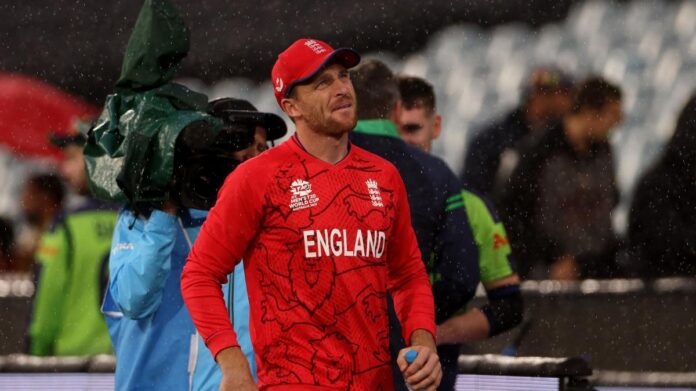How deeply should we analyse the T20 World Cup? A strange question perhaps, given sport should not be taken too seriously in any event, but the aftermath of England’s defeat to Ireland seems a good moment to ponder. These games are, after all, quite random; patterns from day to day are hard to discern, real quality can be hidden, although occasionally a pearl gleams, as Virat Kohli’s innings did against Pakistan.
From its earliest beginnings when the format was seen as something of a joke (you may remember Australia and New Zealand dressing up in retro gear before the first T20 international), it is now discussed in some quarters at the other extreme: overintellectualised and overanalysed to a ridiculous degree. The current weather adds another element of chance, which makes some of the pontificating seem excessive.
Actually, this trend to overtheorise T20 is not particularly player driven. The players recognise the format for what it is: the main driver of the commercial side of the game that will provide the most varied opportunities in the future, but they recognise its randomness as well, holding a firm perspective on the daily slings and arrows of fortune.
It is one of the reasons why T20 is enjoyed by so many of the elite players. Defeat in a Test match, especially, or 50-over international hurts precisely because it is hard to escape the truth that you have been exposed on the day (or days) and beaten by a better team. Because T20 is not like that, players are not so hard on themselves. They find it easier to move on.
That is not to say that they don’t care or worry about success or failure; or about training hard and preparing well. To watch England’s fielding drills ahead of the Ireland match was to be reminded how far things have come. They were thrilling to watch, fast-paced and accurate. It is simply that players recognise it pays not to dwell on failure.


